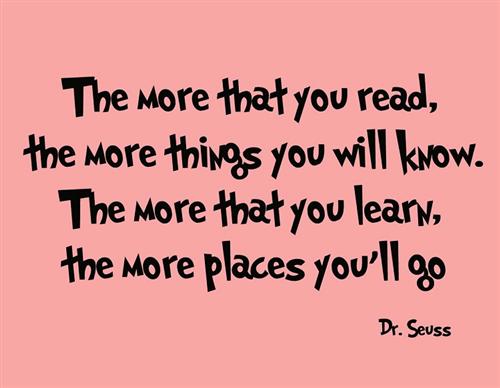Werba, Aleksandra
Page Navigation
- Mrs. Werba's Homepage
- Homework
- Announcements
- Math: A World of Resources in One Easy Place
- Science
- STEM
- Parent Zone
- Important Links
- Special Assignments
- Calendar
- Our Program
- Sixth Grade Team Expectations, Guidelines, and Rules
- ELA and Social Studies Curricula
- Grading Policy
- ELA
- Social Studies
- Wiki Pages
- Supply Lists
- About the Teacher
- Kinry Road Elementary School
- ELA
- Readers' and Writers' Workshop
-
Research has shown that to be successful readers and writers, students must read and write in abundance. Our goal is to give students the guidance and opportunity to do so in the classroom setting and to encourage them to continue this work independently. We want our students to be voracious readers and writers!To facilitate our goals, we implement Reading and Writing instruction based on the work of Lucy Calkins and The Teachers College Reading and Writing Project, a research and staff development organization housed at Teachers College, Columbia University.
 Writers' WorkshopDuring the writing workshop, students are invited to live, work and learn as writers. They learn to observe their lives and the world around them while collecting, drafting, revising, editing, and publishing well-crafted narrative and expository texts. Students receive direct instruction in the form of a minilesson and a mid-workshop teaching point. The teacher explicitly names a skill that proficient writers use that is within reach for most of the class, then demonstrates the skill and provides students with a brief interval of guided practice using it. Students are also given time to write, applying the skills and strategies they've learned to their own writing projects. As students write, the teacher provides feedback that is designed to move students along trajectories of development. The feedback is given through one-to-one conferences and small group instruction, and includes instructional compliments and teaching. The teacher helps a writer imagine what the next challenge is, and equips that writer with the skills and strategies necessary to begin tackling that new frontier.Occasionally, you will see students coming home with pieces of writing that have not been graded or marked. In fact, there will be pieces of writing they will work on that I will never even see. Shocking, I know, but not to worry! There will be plenty of time for feedback and grading. Remember, the pathway to becoming a successful writer is to write......A LOT!!
Writers' WorkshopDuring the writing workshop, students are invited to live, work and learn as writers. They learn to observe their lives and the world around them while collecting, drafting, revising, editing, and publishing well-crafted narrative and expository texts. Students receive direct instruction in the form of a minilesson and a mid-workshop teaching point. The teacher explicitly names a skill that proficient writers use that is within reach for most of the class, then demonstrates the skill and provides students with a brief interval of guided practice using it. Students are also given time to write, applying the skills and strategies they've learned to their own writing projects. As students write, the teacher provides feedback that is designed to move students along trajectories of development. The feedback is given through one-to-one conferences and small group instruction, and includes instructional compliments and teaching. The teacher helps a writer imagine what the next challenge is, and equips that writer with the skills and strategies necessary to begin tackling that new frontier.Occasionally, you will see students coming home with pieces of writing that have not been graded or marked. In fact, there will be pieces of writing they will work on that I will never even see. Shocking, I know, but not to worry! There will be plenty of time for feedback and grading. Remember, the pathway to becoming a successful writer is to write......A LOT!! Readers' Workshop
Readers' WorkshopOur work with reading begins with a deep commitment to giving students large chunks of time deeply engaged in reading books—ones of their own choosing, when possible, and always ones that they can read with fluency, accuracy and comprehension. Mountains of data confirm that in order for students to progress as readers, they must have abundant time to read.
We begin the year by assessing the students and teaching them to learn the level of text complexity that each of them can handle (on an A-Z scale). We then channel students toward texts they can read, also known as their independent reading level. Small group instruction provides opportunity to take their reading to the next level with slightly more challenging texts. This is called their instructional level. Students read in school and continue reading at home, carrying books between home and school. They will keep reading logs in which they scrupulously record the data on their progress through books and the moments spent reading, studying this data alongside teachers to ascertain patterns in their reading.
Readers' Workshop is modeled similarly to Writers' Workshop. We begin with a mini-lesson that has a focused teaching point. Students then use that teaching point as a guide during their independent reading time. The teacher conferences individually with readers to guide and assess their reading. We finish with a sharing of how students utilized the teaching point during their independent reading.We encourage you to strike up a conversation with your child about what they are reading and writing. Ask him to share his journal with you. Have a book talk with her about the current book she is reading. When possible, read along with your child and if you are so inclined, write along with them, too! You'll be surprised with what you'll find!

